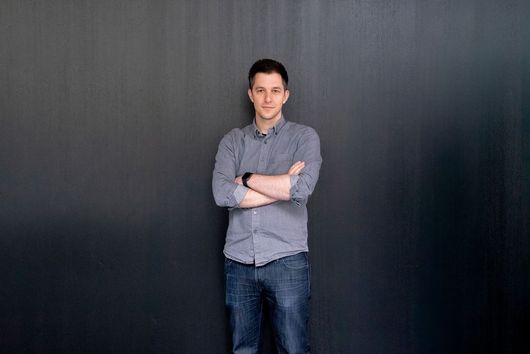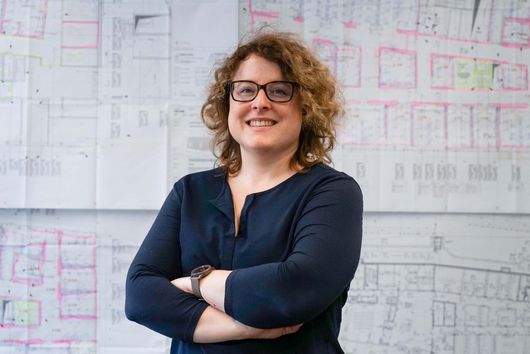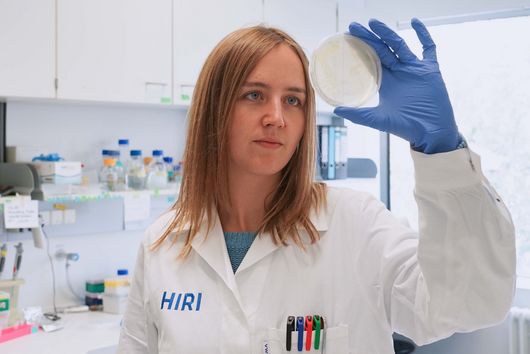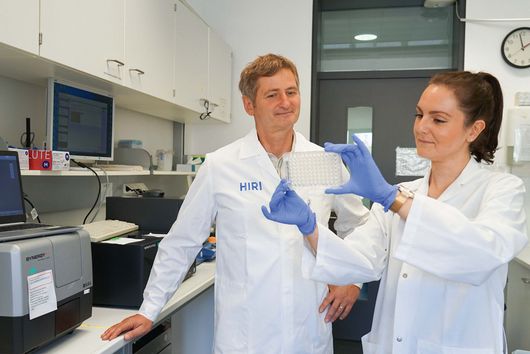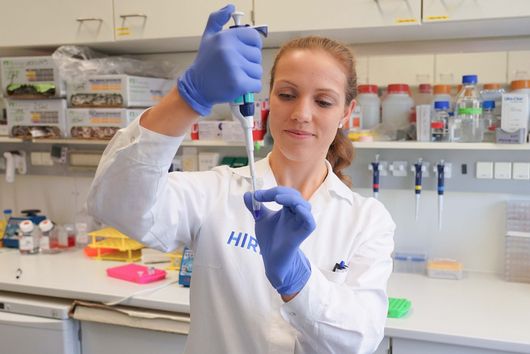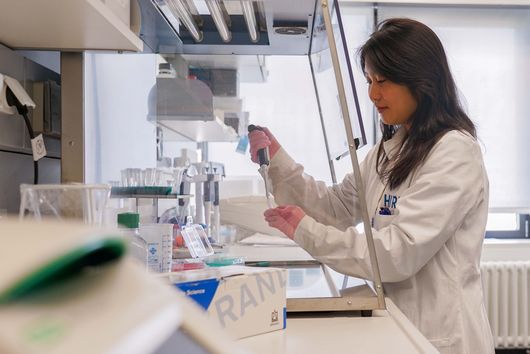
Exploring the invisible world that surrounds us
Introducing biotechnologist Elise Bornet, a PhD student in HIRI’s graduate training program, “RNA & Infection”. An interview
The graduate training program at HIRI is unique. Prospective students do not apply for a specific lab and a predetermined topic, as is the case with other programs.
Instead, successful applicants are first exposed to three different laboratories at HIRI. During this rotation phase, HIRI’s research groups compete for the PhD students before the latter decide on their desired lab. In close cooperation with the group leaders, the PhD students are then expected to define their PhD topic independently.
Elise Bornet has chosen the Westermann lab to conduct her PhD studies. We want to learn what motivates her and why she came to Würzburg.
You have studied biotechnology. What is fascinating about biotechnology for you?
What I like about biotechnology is the idea of applying mechanisms known in nature to create novel technologies and products. As I went through my studies, I developed a particular interest in RNA and microbes. I found it mind-blowing how we are able to look at RNA in micro-organisms and understand more about the invisible world surrounding us.
I particularly like science because it really puts everything back in perspective and links the inter-connectedness of life.
What are your key research interests?
I am especially interested in RNA biology, infectious disease, host-microbe interactions, symbiosis events and evolution.
What do you want to achieve in the future?
In a first step I would like to complete a successful PhD. Then I am very curious and I would mostly just want to learn more about science and novel discoveries whether through a Postdoc or other opportunities.
You come from France and you have studied in Strasbourg. Then you have conducted research in the USA and have now settled in Würzburg. At these various locations, what has been your experience?
Yes, I studied in different places, Bachelor in the UK, Masters in France and the US and finally a PhD in Germany. This international experience is something I really cherish. Not only was I able to see how research works in different countries and environments, academic and industry, but also to create a very diverse network of researchers.
Did you find it easy to settle in Würzburg?
Settling in Wurzburg was relatively easy. Although I have to say if you don’t speak German it is obviously harder. There are still a lot of opportunities to meet people, go out and learn German. Wurzburg is a very nice city with a lot of interesting places to explore. Also it is quite central in Germany so it is relatively easy to get around.
Why did you decide to obtain your PhD in our graduate training program, "RNA & Infection"?
I decided to obtain my PhD in the “RNA and Infection” graduate program because I didn’t really know on what to focus my PhD but knew I wanted to do a PhD and work with RNA and infectious diseases. The graduate program was the perfect way to learn more about the field. It was very valuable to rotate through three different groups before starting. You have the opportunity to meet everyone at the institute and learn many different techniques through those 18 weeks.
Once the rotations ended, I thought it was especially beneficial to be able to come up with your own PhD proposal. Being able to link techniques and research topics you developed in the different groups. That was definitely a plus. Coming up with your own PhD proposal really makes you appreciate the field and the subject a lot more.
What do you recommend to other prospective students before they apply?
Before applying I would recommend informing yourself about the institute, the research, the people, the environment and living in Germany.
What are you currently working on?
I am currently working on establishing single-cell RNA-Seq on a gut commensal bacteria, Bacteroides thetaiotaomicron with the aim to explore its heterogeneity and record Bacteroides single-cell transcriptomics during host colonization and under infection conditions.






